Convention Case Studies
APRIM 2023: Five Hundred Global Astronomers Gather for a Major Meeting in Fukushima, Japan
For its Asia-Pacific regional meeting, bringing together some 500 astronomers from an area stretching from India to the west coast of North America, International Astronomic Union (IAU) president Dr. Debra Elmegreen says that the Big Palette Fukushima exhibition center in Koriyama City, Fukushima Prefecture, was a perfect choice.
"I'd absolutely recommend Fukushima and Japan to anyone thinking of having an event," Dr. Elmegreen says. "The facilities are wonderful. Everyone here is so gracious; they've all been so kind, so friendly, and very understanding about those of us who don't speak Japanese, and very helpful."
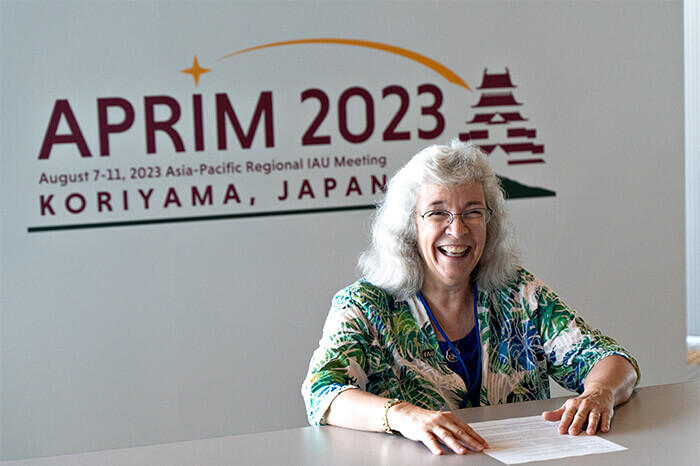
Conference Overview
| Event Name | Asia-Pacific Regional International Astronomic Union Meeting (APRIM) 2023 |
|---|---|
| Dates | August 7-11, 2023 |
| Location | Big Palette Fukushima |
| Attendance | 474; 385 in person, 89 online |
| Event URL | https://aprim2023.org/ |
An international astronomic event focused on Asia-Pacific
Formally known as the 2023 Asia-Pacific Regional IAU Meeting (APRIM), this August event was in fact the third time it has been held in Japan. "The first APRIM was held in New Zealand in 1978," Dr. Elmegreen says. "The first in Japan was in Kyoto in 1984, then in Tokyo in 2003." The IAU, first founded in 1919 (with Japan as one of the original seven member nations), has from its earliest days been holding worldwide general assemblies every three years. "As travel got easier, people wanted to have more frequent meetings. We have national astronomical unions, such as in North America and in Europe, who set up meetings. But we also felt it was important to people in other sectors to be able to meet as well." And thus, APRIM was founded in 1978.
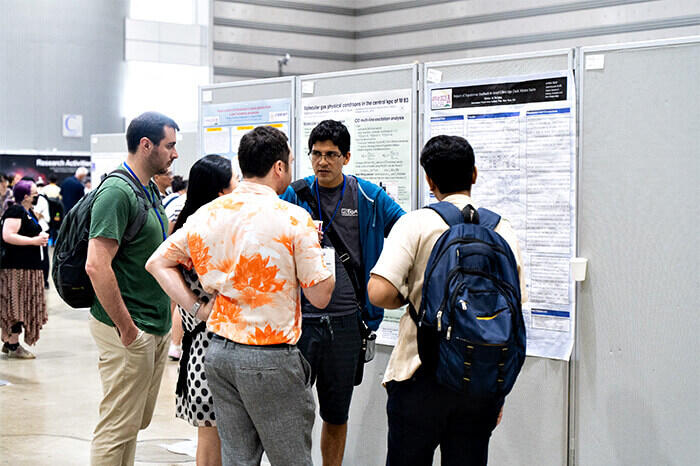
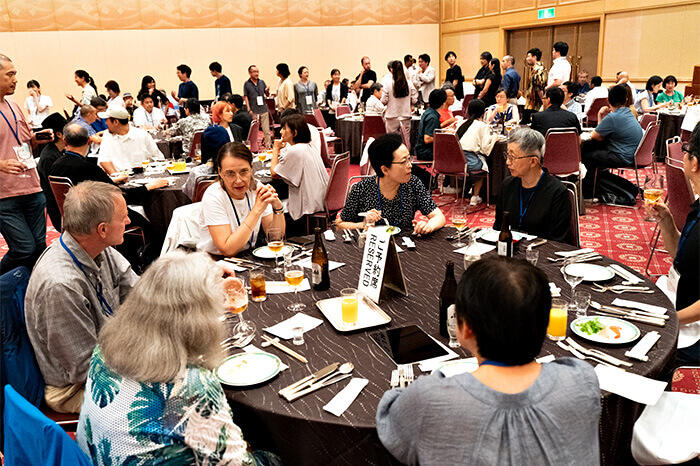
Fukushima specifically selected as host
Dr. Elmegreen adds that Fukushima was a specific choice for the IAU. "Fukushima was chosen because of the huge recovery undertaken there following the disastrous earthquake and tsunami of 2011," she says. "The mayor of Fukushima spoke at our opening ceremony, and choked up talking about us having it here, because he lived through all of that. He was overcome by being able to show that this part of Japan has come through the earthquake and tsunami and the radiation disaster, it survived and it's back in business. For us it was to show support, and that Fukushima is a viable, vibrant area again--and that people should come." She adds that the IAU was very pleased to have Japanese Crown Princess Kiko attend and speak at the opening ceremony. "She spoke very beautifully about how we were honoring Fukushima by having the event here," Dr. Elmegreen says.
Excellent public transport also a source of enjoyment
One area of concern prior to the event in Fukushima in fact turned out to be part of the fun of being here. "I was concerned at first because the hotels are not around Big Palette, but downtown near the train station--but the bus system is great! The first day we were a little nervous, so everyone nervously followed us onto the bus, but we pulled right up to the venue, so we knew it was easy. The town area is fun, too; we wandered through the little streets with millions of restaurants."
APRIM covers all areas of astronomy, Dr. Elmegreen says, and adds that it has been a wonderful opportunity to meet in person after the pandemic years. "I've been particularly excited about meeting the young people, because it's great to see their excitement as they come together for their first meeting, because of the pandemic. The networking component for the younger people is particularly critical ."
Japan's role in hosting APRIM
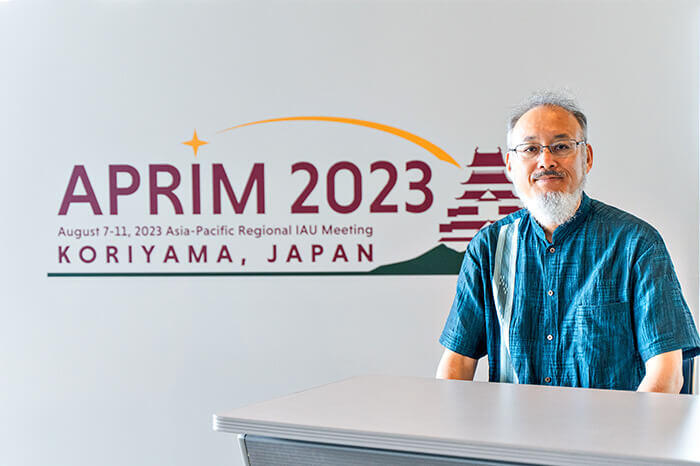
National Astronomical Observatory of Japan
"APRIM was last held in Japan in 2002," says Dr. Junichi Watanabe of the National Institutes of Natural Sciences, National Astronomical Observatory of Japan, and the chair of the organizing committee of APRIM 2023. "This was just a few years after Japan built the Subaru telescope on Hawaii, and Japanese astronomy was a major topic internationally." While Japan, along with the US, has been a leader in astronomy, the event did not return to Japan for 20 years. "We have a responsibility for the development and promotion of astronomy around the world," he says, "so after a discussion at the Science Council of Japan, we decided to invite APRIM back."
Because the suggested venue would be in Fukushima, Dr. Watanabe says, they knew there would be some special measures needed. "We received good local information from the Koriyama Convention Bureau, but also obtained scientific data on radiation, and on the safety aspect of holding an event in Fukushima."
Citizen enlightenment
The general public in Japan is very much interested in astronomy, so the Astronomical Society of Japan always conducts public lectures when it hosts a conference. "I think this is very important, so that a wide range of people can understand both the fun of research in the field, as well as learn about actual results," Dr. Watanabe says. "Through the local newspaper, we were able to share with the local community the news that participants from around the world would be visiting Fukushima, as well as articles talking about astronomy."
Diversity initiatives
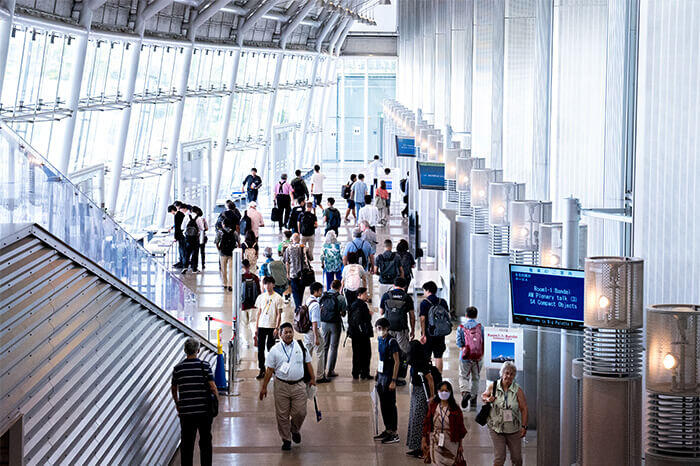
The IAU encourages individual to participate in APRIM, even if their home country is not a member of the IAU. "We wanted to be able to talk with people in the Asia-Pacific region who are actively conducting research and publishing their results, even if they are not from an IAU-member country," Dr. Watanabe says, "so we did subsidize some people's travel expenses so that they could come to Fukushima. As airfare was really getting expensive about the time of the event, some 200 people asked for travel expense assistance." The organizing committee also made arrangements for participants who were unable to come in person, encouraging online participation by waiving the registration fees and even subsidized accommodation costs to further encourage participation. "We very much had diversity in mind in providing this support, which was different from what we had done in the past," he says.
The significance of holding the event in Koriyama City, Fukushima
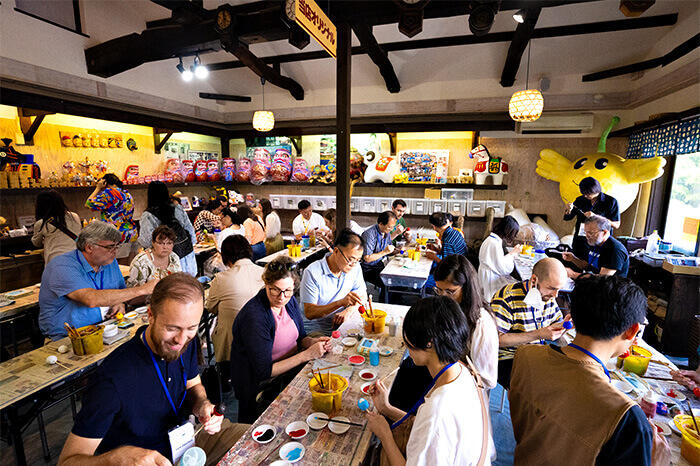
Dr. Watanabe notes that APRIM 2023 was the second major international event to be held at the Big Palette Fukushima since its opening in 1998. "Being able to hold this event, which welcomed 500 people from around the world, was a major achievement for the region," he says. "We negotiated with the bus companies for additional buses, and prepared English-language information. The Koriyama Convention Bureau also helped a great deal with providing multilingual information at restaurants, choosing excursion sites and so on. I think even the bento box lunch sellers learned a lot about providing vegetarian, vegan and even halal meals! Many local businesses reported to me afterwards that they had discovered new things, and would continue to incorporate this into their future business."
Meaning, of course, that Fukushima is even better prepared to host a major international event in the future.

